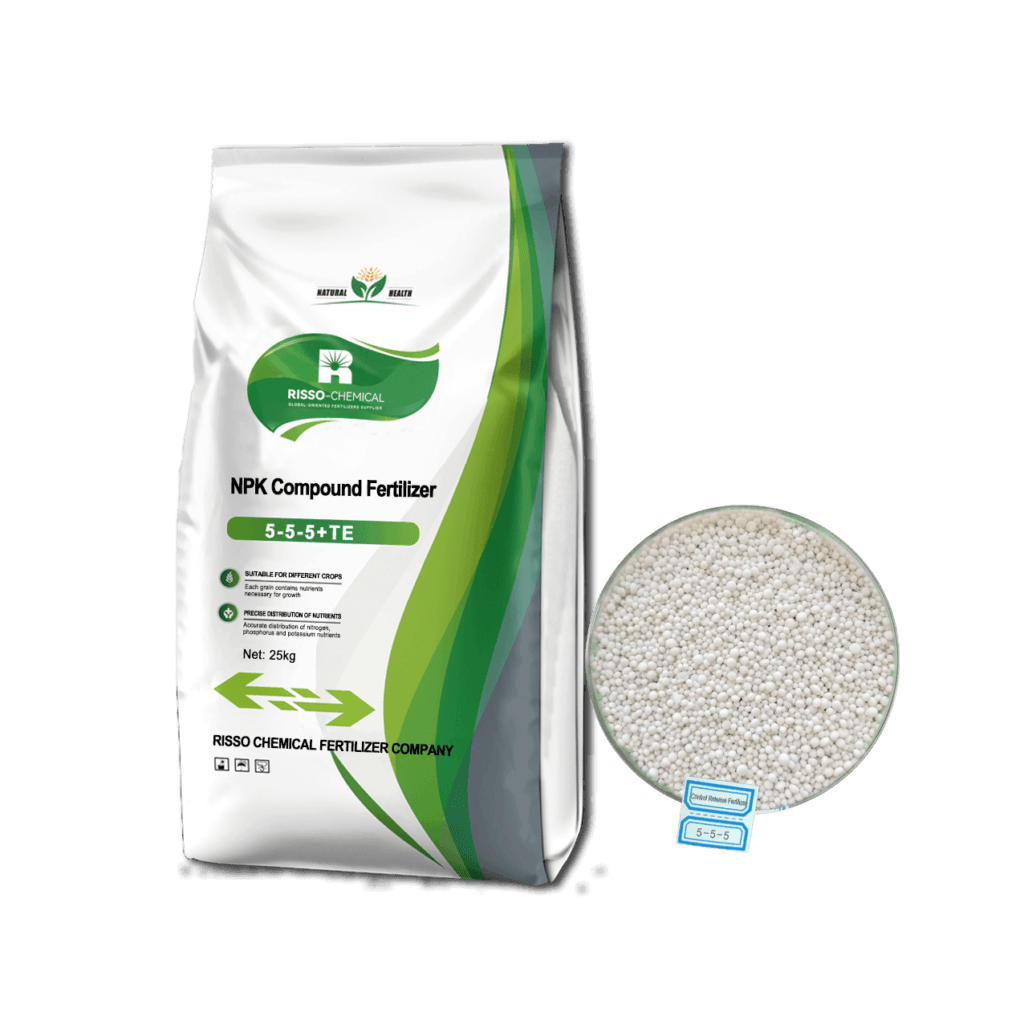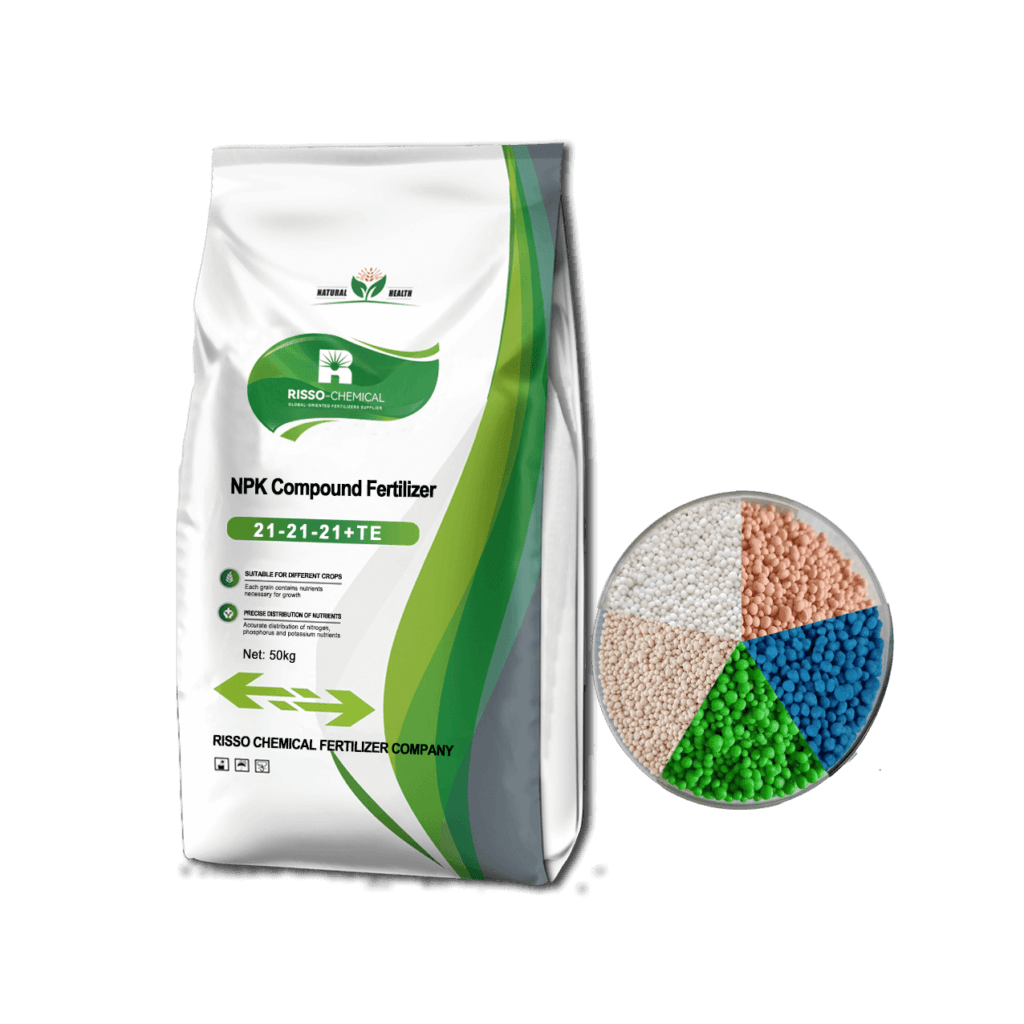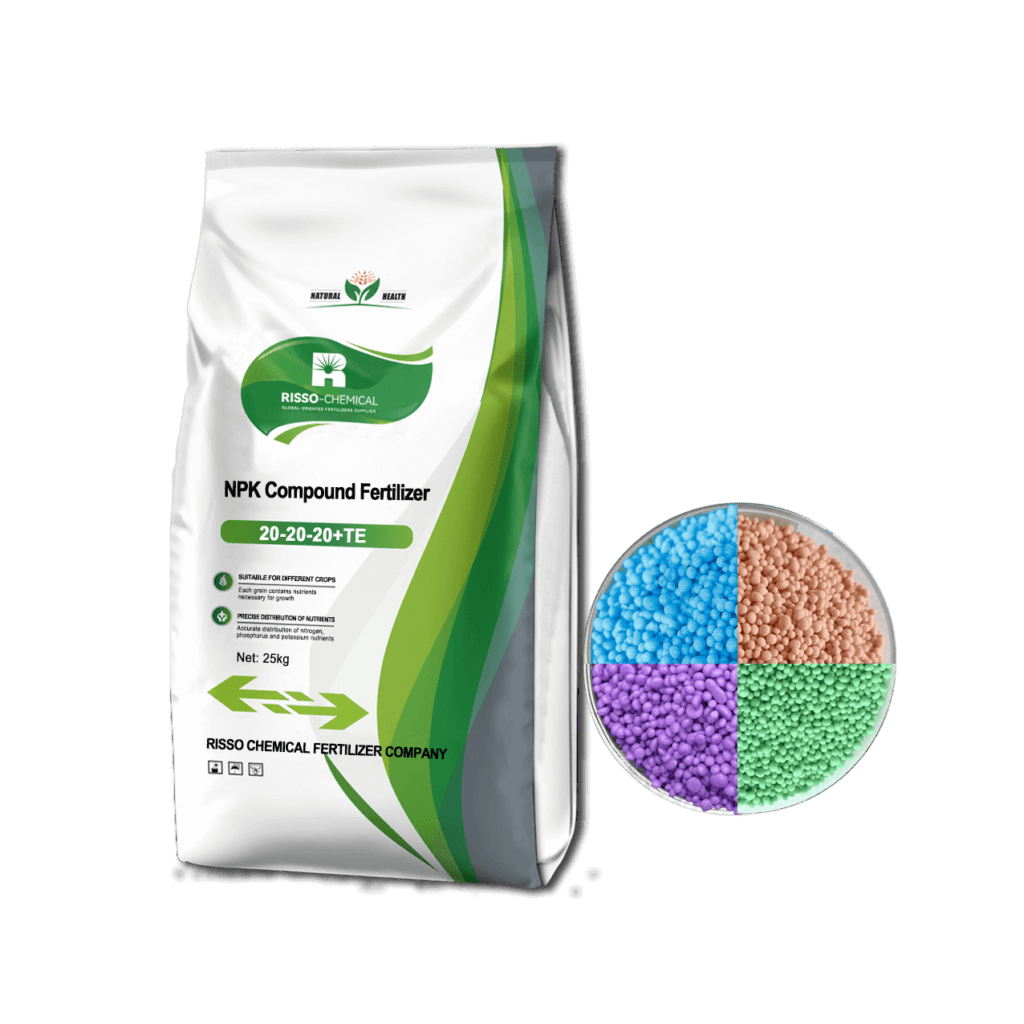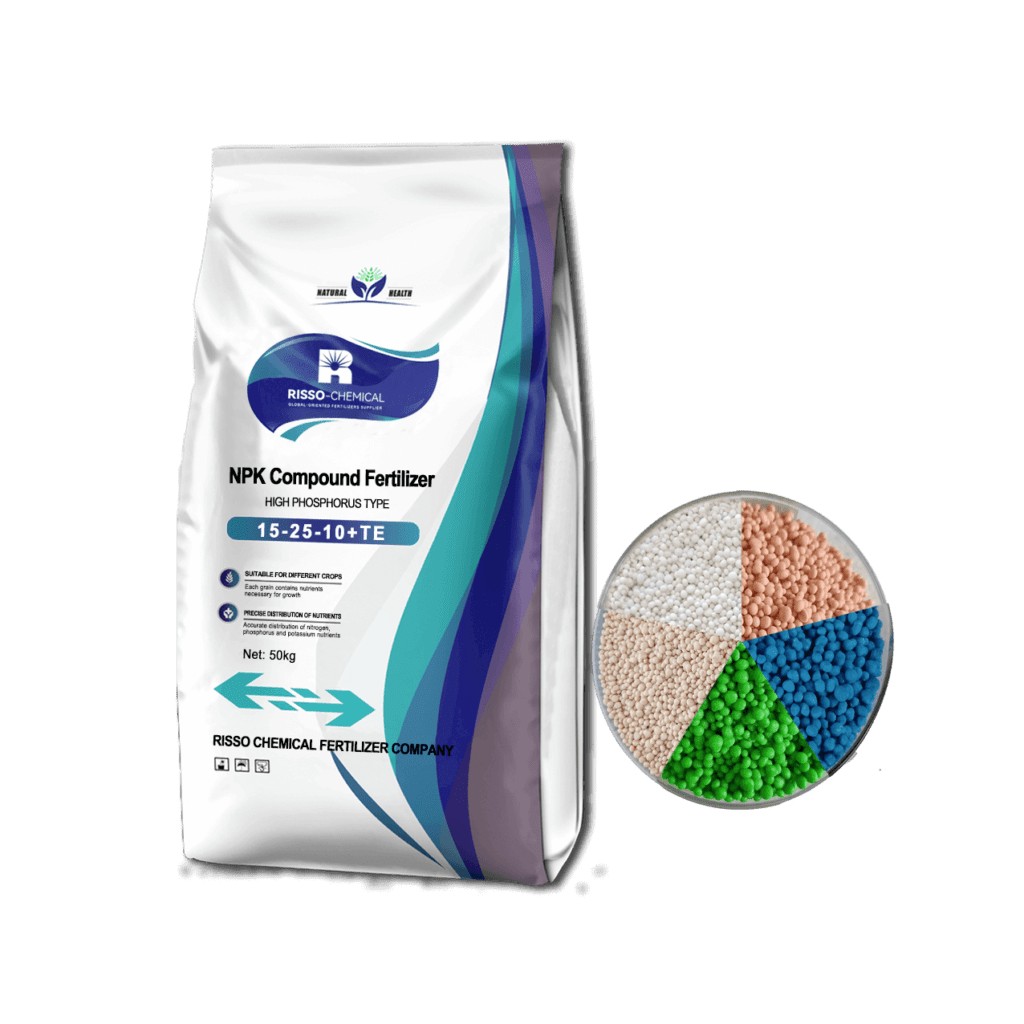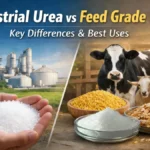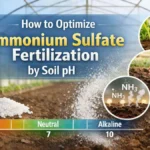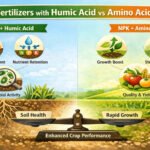Let more growers get greater benefits
What is the Best NPK Fertilizer?
- Industry News
- April 8, 2017
- 3:06 pm
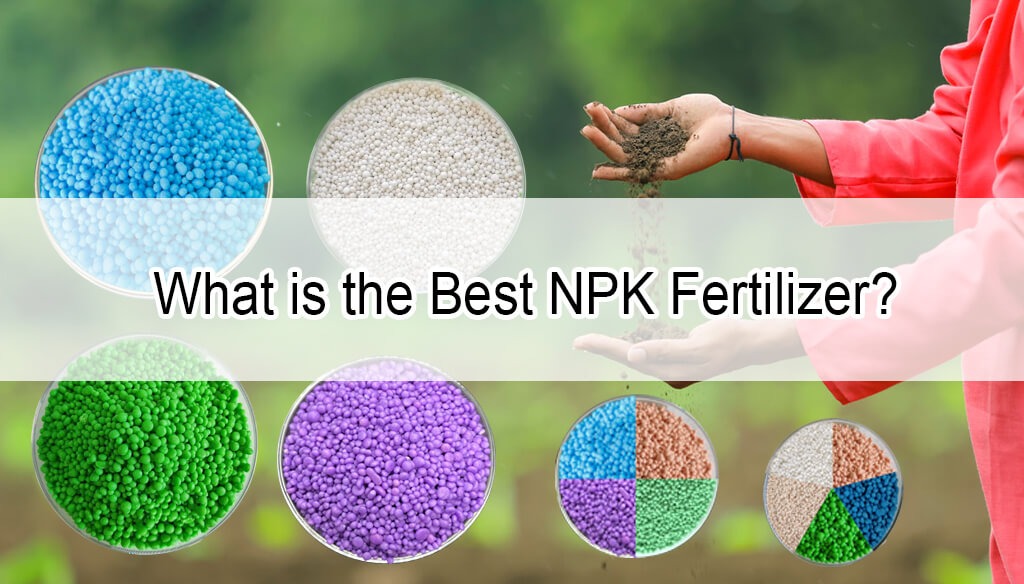

Fertilizers play a crucial role in agriculture and gardening, providing essential nutrients that plants need for healthy growth. Among the various types of fertilizers, NPK fertilizers are particularly popular due to their balanced nutrient composition, comprising nitrogen (N), phosphorus (P), and potassium (K). Each of these elements serves distinct functions in plant development, and understanding their roles can help you choose the best NPK fertilizer for your specific needs. Additionally, incorporating trace elements can enhance nutrient absorption and overall plant health.
This article delves into the best NPK fertilizers available on the market, detailing their nutritional composition, the critical role of trace elements, and guidelines for selection and application.
List of Contents
Understanding NPK Ratios
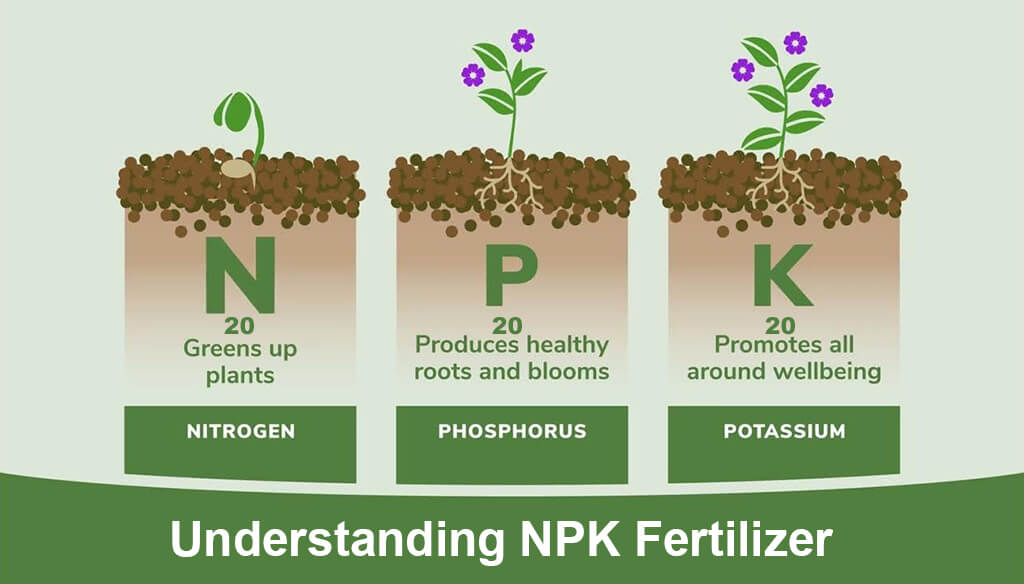

The NPK ratio is expressed in three numbers (e.g., 10-20-10), representing the percentage by weight of nitrogen, phosphorus, and potassium, respectively. Here’s what each nutrient does:
Nitrogen (N): Essential for leaf and stem growth, nitrogen helps produce chlorophyll, which is critical for photosynthesis. Plants deficient in nitrogen may exhibit yellowing leaves and stunted growth.
Phosphorus (P): Vital for root development, flowering, and fruiting, phosphorus aids in energy transfer and photosynthesis. Insufficient phosphorus can lead to poor root systems and delayed flowering.
Potassium (K): This nutrient is crucial for overall plant health, helping with water regulation, disease resistance, and nutrient uptake. A lack of potassium can result in weak stems and increased susceptibility to disease.
Benefits of Trace Elements
While macronutrients provide the foundational nutrients for plant growth, trace elements are indispensable for optimal physiological functioning. These micronutrients, required in minute quantities, play critical roles in numerous metabolic processes. Key trace elements include:
Iron (Fe): Vital for chlorophyll production and enzyme functions, iron is essential for photosynthesis and energy metabolism.
Zinc (Zn): Critical for hormone synthesis and enzymatic activity, zinc supports growth regulation and is necessary for plant metabolism.
Manganese (Mn): Involved in photosynthesis and nitrogen metabolism, manganese is crucial for chlorophyll synthesis and enzyme activity.
Copper (Cu): Essential for protein synthesis and respiration, copper facilitates various biochemical processes.
Boron (B): Necessary for cell wall formation and reproductive health, boron influences pollination and seed development.
Molybdenum (Mo): A key player in nitrogen fixation and nitrate reduction, molybdenum is essential for converting nitrogen into a usable form for plants.
The inclusion of these trace elements in NPK fertilizers ensures that plants receive a comprehensive nutrient profile, addressing potential deficiencies and promoting optimal growth.
Selecting the Best NPK Fertilizers
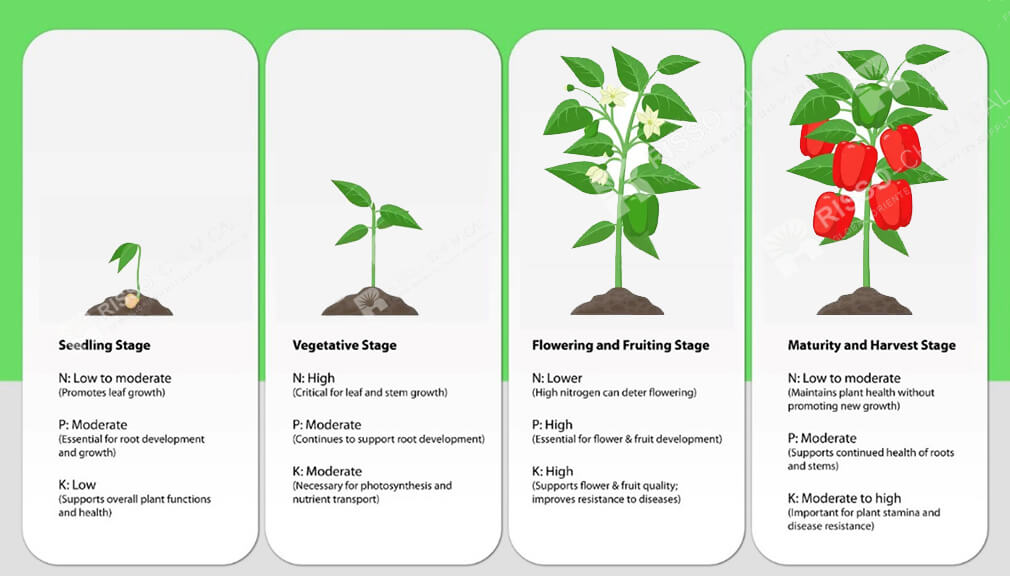

The selection of the best NPK fertilizer is contingent upon specific plant needs, growth stages, and soil conditions. Below are some of the most effective formulations available, alongside their nutritional ingredients and applications:
1. Balanced All-Purpose Fertilizer (e.g., 10-10-10+TE, 15-15-15)
This formulation provides an equal balance of nitrogen, phosphorus, and potassium, complemented by essential trace elements. It is versatile, catering to a wide range of crops and promoting vigorous growth throughout the growing season.
Nutritional Ingredients:
- N: Supports leafy growth and vitality.
- P: Enhances root establishment and flowering.
- K: Improves overall plant health and resilience.
- TE: Comprehensive mix of iron, zinc, manganese, copper, boron, and molybdenum.
Best For: General-purpose gardening, including vegetables, flowers, and fruit-bearing plants.
2. High-nutrient balanced fertilizer(e.g., 20-20-20+TE, 21-21-21)
Known for its balanced ratio, this formulation is particularly beneficial for fast-growing crops and can be utilized in hydroponic systems. The inclusion of trace elements ensures that micronutrient needs are met effectively.
Nutritional Ingredients:
- N: Encourages healthy foliage.
- P: Supports flowering and root establishment.
- K: Enhances stress tolerance and overall vigor.
- TE: A complete suite of essential micronutrients.
Best For: Hydroponics, fast-growing vegetables, and ornamental plants.
3. High-Phosphorus Fertilizers(e.g., 10-52-10+TE)
This high-phosphorus formulation is ideal for supporting strong root systems and promoting flowering, making it particularly advantageous during the early stages of plant development.
Nutritional Ingredients:
- N: Facilitates initial growth and development.
- P: Critical for robust root and flower development.
- K: Aids in nutrient uptake and plant vitality.
- TE: Boron and molybdenum to support reproductive success.
Best For: Flowering plants, seedlings, and transplants.
4. High-Potassium Fertilizers (e.g., 15-25-15):
This formulation is rich in potassium, making it particularly suitable for fruit-bearing plants and enhancing fruit quality and size during the later stages of growth.
Nutritional Ingredients:
- N: Supports overall vegetative growth.
- P: Provides energy for fruiting and flowering.
- K: Essential for water regulation and fruit quality.
- TE: Iron, zinc, and manganese for improved development.
Best For: Fruiting plants such as tomatoes, peppers, and cucumbers.
5. Specialty Fertilizers:
Some NPK fertilizers are tailored for specific plants or conditions, such as lawns, vegetables, or container gardens. These often include a mix of primary nutrients and beneficial trace elements, catering to the unique requirements of different plant types.
Recommended NPK Fertilizers
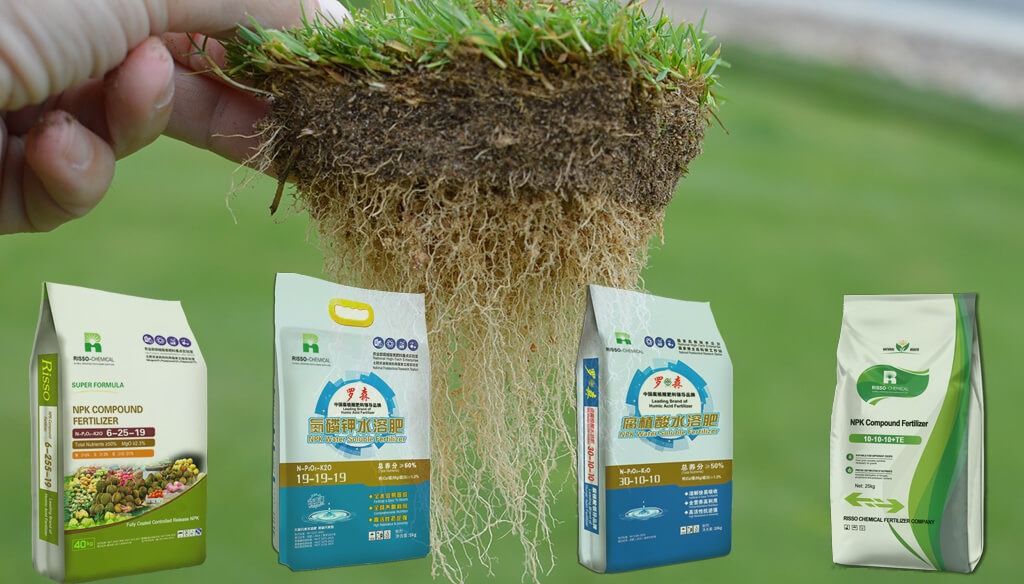

- Risso 10-52-10 Water Soluble NPK Fertilizer
- NPK Ratio: 10-52-10
- Description: This water-soluble fertilizer is high in phosphorus, making it effective for enhancing flowering and fruit production. It’s quickly absorbed, promoting rapid plant growth.
- Miracle-Gro Water Soluble All Purpose Plant Food (24-8-16)
- NPK Ratio: 24-8-16
- Description: This all-purpose fertilizer is designed for flowers, vegetables, and shrubs. It’s water-soluble and provides quick nutrient absorption.
- Osmocote Plus Outdoor & Indoor Plant Food (15-9-12)
- NPK Ratio: 15-9-12
- Description: A slow-release fertilizer great for container plants and garden beds. It feeds plants for up to six months and is suitable for indoor and outdoor use.
- Jobe’s Organics All Purpose Fertilizer (4-4-4)
- NPK Ratio: 4-4-4
- Description: An organic option made from natural ingredients, suitable for various plants. It promotes soil health and encourages microbial activity.
- FoxFarm Grow Big Liquid Concentrate Fertilizer (6-4-4)
- NPK Ratio: 6-4-4
- Description: Formulated for vegetative growth, this liquid fertilizer provides essential nutrients for robust growth and is popular in hydroponic systems as well as soil.
- Dyna-Gro Liquid Grow Fertilizer (7-9-5)
- NPK Ratio: 7-9-5
- Description: Designed for general plant growth, particularly among indoor gardeners and hydroponic enthusiasts.
- Risso 20-20-20 All-Purpose Fertilizer
- NPK Ratio: 20-20-20
- Description: A balanced fertilizer versatile for various crops, suitable for all types of plants, promoting growth and flowering.
- Nature’s Care Organic Vegetable & Flower Fertilizer (5-5-5)
- NPK Ratio: >5-5-5
- Description: This organic fertilizer is ideal for vegetable and flower gardens, providing a balanced nutrient supply while being gentle on the environment.
Application Tips
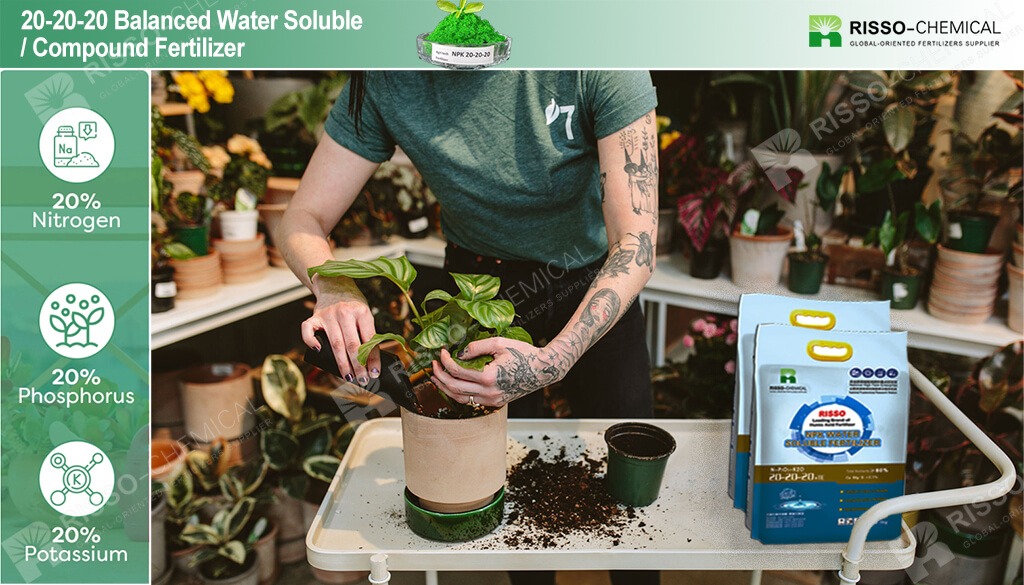

To achieve the best results with NPK fertilizers:
Soil Testing: Before applying fertilizers, conduct a soil test to determine nutrient deficiencies and pH levels. This will help you select the most suitable NPK ratio and avoid over-fertilization.
Follow Instructions: Always follow the manufacturer’s instructions for application rates and timing. Over-fertilizing can harm plants and lead to nutrient runoff, impacting the environment.
Watering: Water your plants thoroughly after applying fertilizer to help nutrients penetrate the soil and reach plant roots effectively.
Monitor Plant Health: Keep an eye on your plants for signs of nutrient deficiency or toxicity, adjusting your fertilization strategy as needed.
Conclusion: Choosing the Best NPK Fertilizer
Choosing the best NPK fertilizer involves understanding the specific needs of your plants and the nutrients they require for optimal growth. By selecting fertilizers with appropriate NPK ratios and incorporating trace elements, you can support healthy, vibrant plants that thrive in their environment. Whether you are a home gardener or a commercial grower, investing in high-quality NPK fertilizers will yield remarkable results in your gardening endeavors.
Fertilizer Related Products
If you want to know other questions about Best Fertilizer or NPK fertilizers , please contact us and we will provide professional answers.
- Article
What will you get when touch?
✔ Quick & helpful reply within 6 hours.
✔ Tailored solutions for your project.
✔ One-stop product, tech, market
TRENDING
Want to find a China fertilizer manufacturer?
Risso will be your best choice; send us your request for your fertilizer details requirement
TAIAN RISSO CHEMICAL FERTILIZER CO.,LTD.
- Address: High-tech Development Zone, Taian City, Shandong Province
© Copyright 2017 RISSO CHEMICAL. All Rights Reserved.



